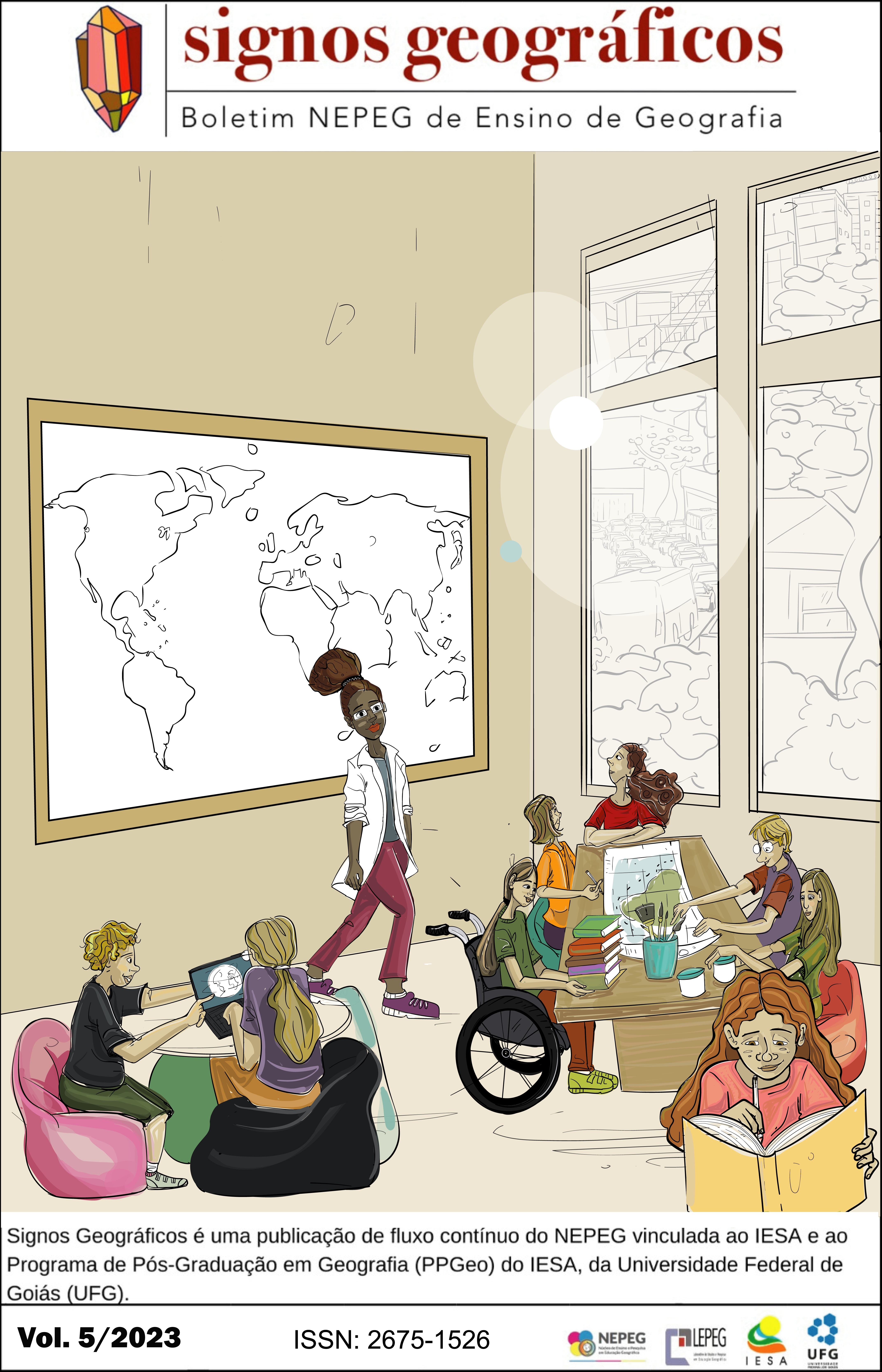GEOGRAPHICAL REASONING: REFLECTIONS AND POSSIBILITIES BASED ON THE BNCC
DOI:
https://doi.org/10.5216/signos.v5.75969Keywords:
Geography, Teaching of Geography, Geographical ReasoningAbstract
The Common National Curricular Base establishes general and specific competencies to the various curricular components. For Geography, the base puts as its objective to make students make a critical reading of the world, while knowing how to solve problems arising from the interaction society-nature, establishing as a means for this the development of Geographical Reasoning. In order to translate the theory of BNCC Geography, this paper aims to discuss the concept of Geographical Reasoning in a theoretical way and show through a practical activity how to develop this reasoning, along with the skills and competencies requested by the base. The study shows its importance by serving as an aid to the pedagogical practice of geography teachers through the construction of a proposal built following the BNCC standards and that can be adapted in other realities. This study has a methodological path based on bibliographic research, having as authors Brazil (2017), Roque Valadão and Ascenção (2017), Silva (2021), Portela (2018) and field research, conducted with students from the 6th grade of elementary school, in the city of Teresina - PI. It is concluded that it is possible to apply in practice what the BNCC Geography asks and that the geographic reasoning enables the understanding of the spatiality of the phenomenon, making the student see sense and meaning in geography contents, providing a greater engagement of the class in the teaching-learning process.








